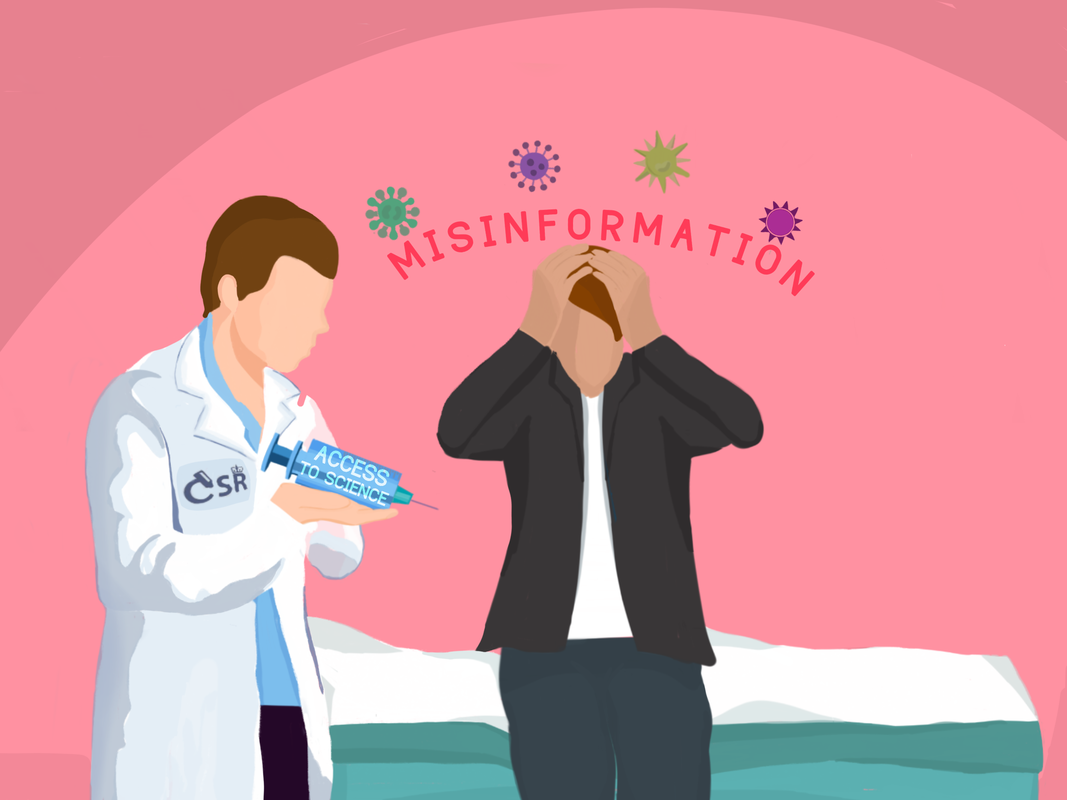|
By Hannah Lin, Amit Regev, Manasi Sharma, Maria Trifas, & Jason Wang
In mere months, COVID-19 has plunged the entire world into an overwhelming fit of confusion, anxiety, and fear. Despite this, one thing has become clearer than ever: in this time of chaos, information is our most valuable resource of all. Politics, news outlets, and social media clamor for our attention everywhere we look, and the subsequent information overload has served as a prime festering ground for rumors and misconceptions. From vaccine development timelines to “miracle cures” to virus testing availability, it has become immensely difficult to determine what information is trustworthy. For the sake of our time and our sanity, we must act now to embrace and encourage scientific engagement. The overwhelming quantity of information produced by this pandemic necessitates that we help provide everyone with the tools that can help us make sense of it all. These tools are the principles of science itself, so it is the urgent responsibility of the scientific community to make them as clear as possible, starting with full transparency and accessibility. Transparency is crucial because of its role in building scientific trust. Global media culture encourages hasty publications, commercial ties, and flashy research titles, which only engender false hope and distrust. Since research can be inaccurately reported in so many ways, new findings need to be as transparent as possible in order to keep scientists accountable, minimize misrepresentation, and make it easier for the public to make well-informed decisions during this critical time. Accessibility is crucial because it allows the interests of the public to align with the interests of scientists across the globe. By making science more accessible, we can make it easier for people from outside the scientific community to leverage the applications of new discoveries towards public relief efforts against the pandemic, which is a cause we can all get behind. To better promote collaborations between scientists and the public, portals such as Columbia’s Executive VP of Research webpage, Mobilizing Research Against COVID-19, have been established to present summaries of research results precisely and with minimal jargon. A professor at Columbia’s Data Science Institute has also received an NSF grant to create a more expansive virtual database to aid government, industry, and NGO efforts as well. Together, transparency and accessibility can serve as our guides in unifying and empowering our global community. Scientific information is empowering, and its effects are twofold. Firstly, it helps ease doubts and fears by making the facts clear, and secondly, it helps people understand how they can contribute to the fight against this pandemic. Right now, it’s easy to feel helpless as the horrors of the pandemic proliferate every single day, but we as a society can make it easier to rise above that helplessness by initiating community-wide discussion of facts, front-line efforts, and vital research endeavors. So if we want things to improve, making science transparent and accessible for all is not just an option—it’s a responsibility. --- At the Columbia Science Review, our mission has always been to promote scientific engagement and inquiry in unique, thought-provoking ways. To this end, we are launching a new website, The CSR COVID-19 Public Hub, in partnership with Columbia’s Executive VP of Research (EVPR) Office. Our site focuses on interactive content tailored to the general public, keeping explanations understandable while maintaining authoritative scientific rigor. Highlights of our site include:
Our hope is that CSR’s COVID-19 Public Hub will provide clear scientific resources to the Columbia community, its extended family, and beyond as holistically as possible. Virologists, sociologists, and physicians are working tirelessly to fight this pandemic, but we must not forget that students, parents, and people of all backgrounds are equally important in bolstering the understanding and discussion that surrounds this virus. We should not need to wait for a catastrophic pandemic to prove to us how essential science is and has always been. If anything, we should promote scientific understanding as our most powerful vaccine to prevent further misinformation and needless tragedy. Now, more than ever, is the time to get informed and stay engaged.
---
Manasi Sharma is the founder of CSR’s COVID-19 Public Hub project and a member of CSR. Jason Wang is CSR’s current President and a contributor to the web design and marketing for the Public Hub. Hannah Lin is a Senior OCM at CSR and Assistant Chief of Web Design for the Public Hub. Amit Regev & Maria Trifas are members of the Public Hub team, contributing to the interviews and marketing sections.
0 Comments
Leave a Reply. |
Categories
All
Archives
April 2024
|

